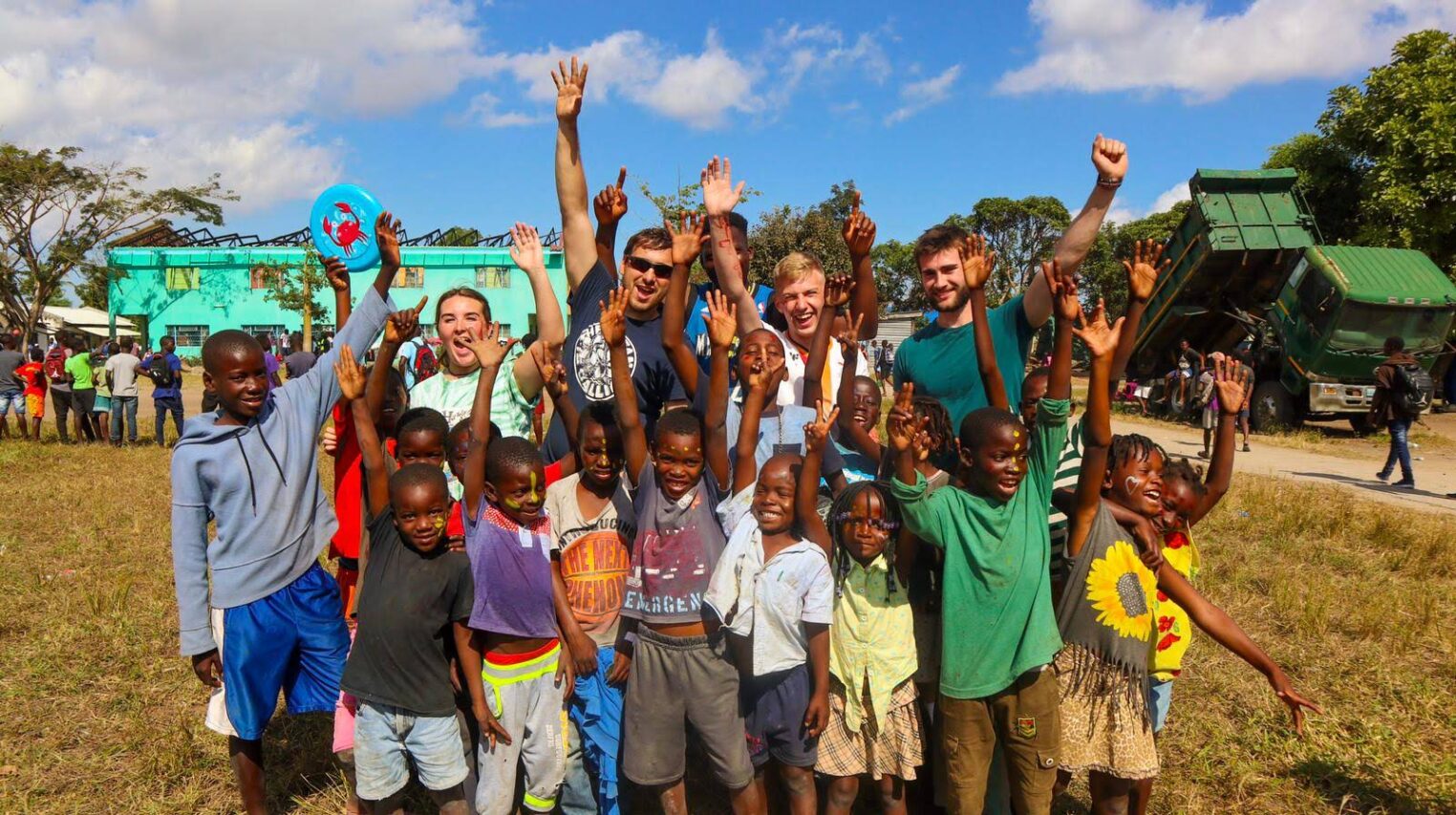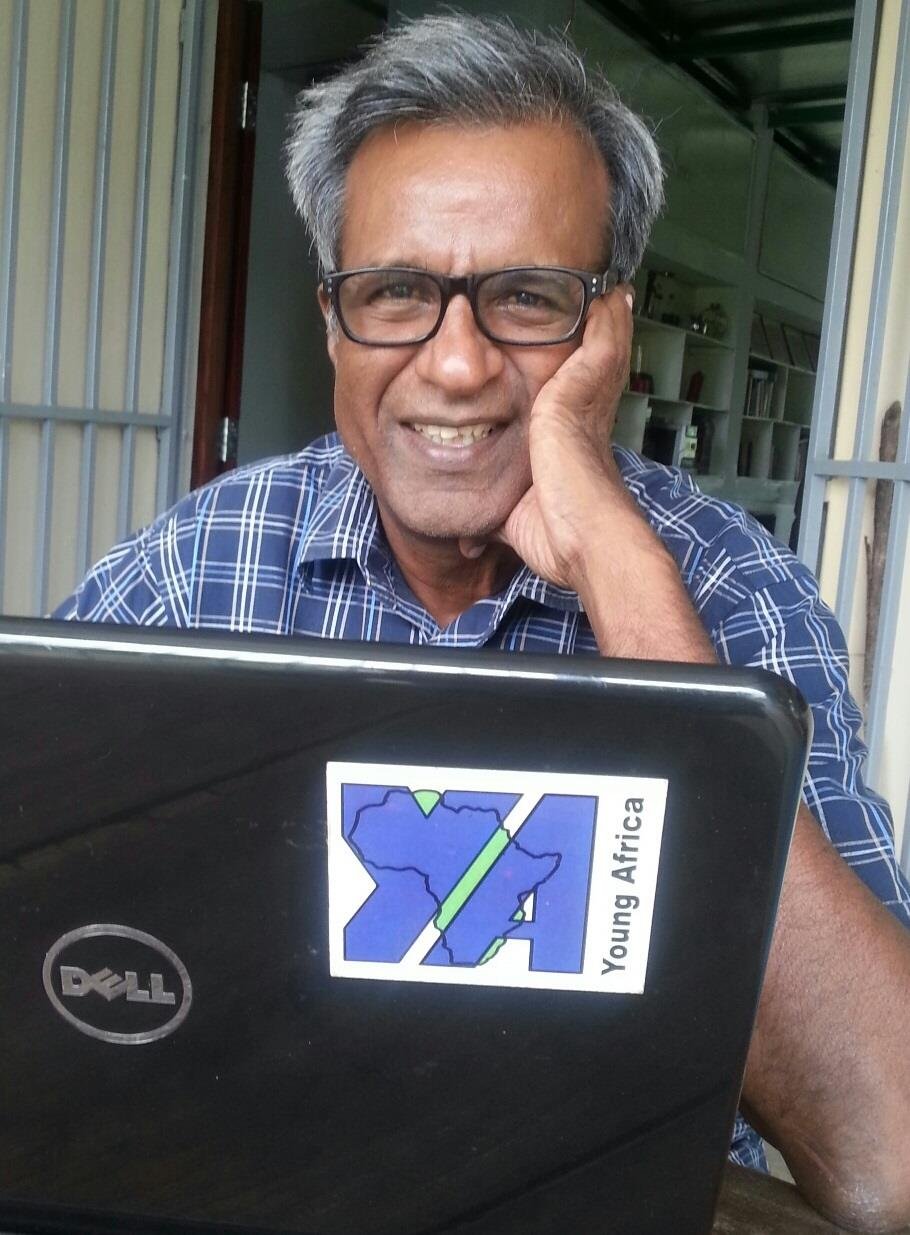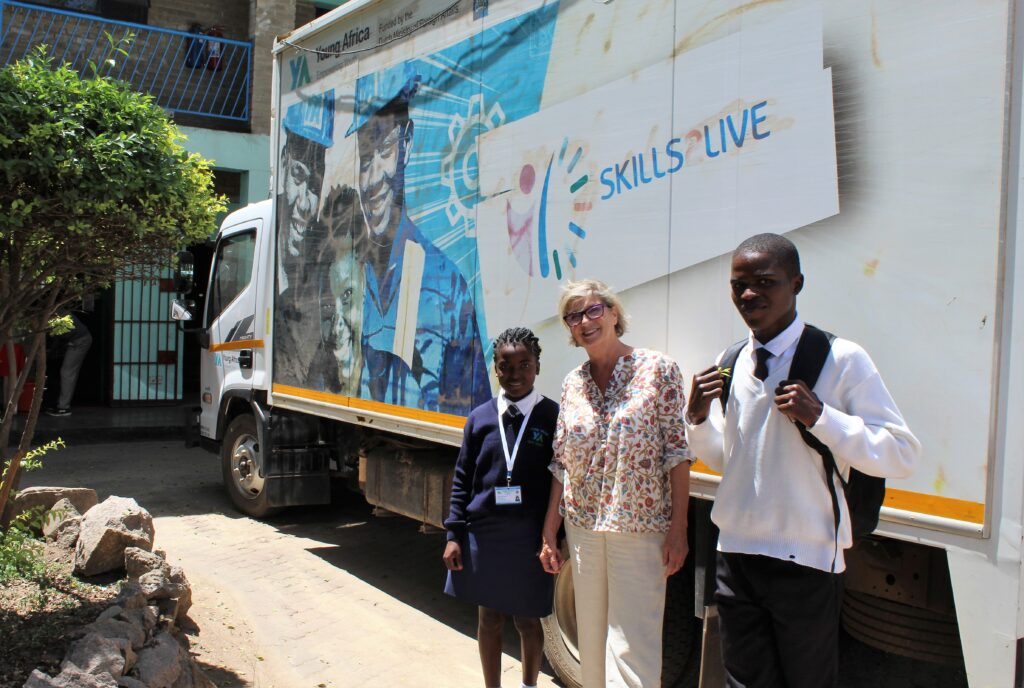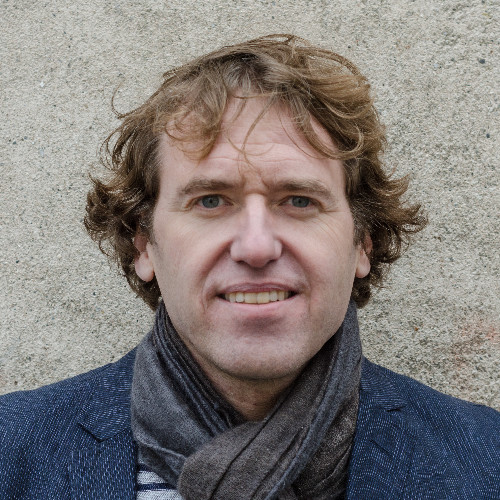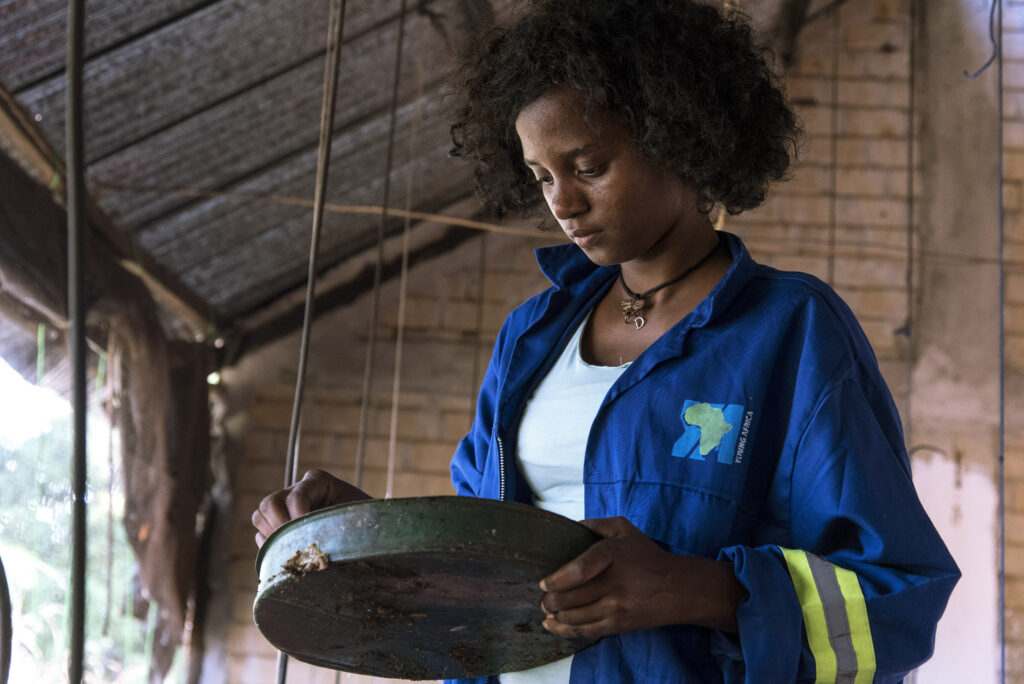
Thomas Van Praag - An interview with our Young Africa Ambassador
Thomas Van Praag spent many years of his childhood living in various African countries before returning to the Netherlands to continue his studies. In 1994 he founded Dimensional Insight Netherlands, a business and artificial intelligence software company. Upon selling his company, Thomas continues as Director of Dimensional Insight Europe. He is currently restoring an abandoned estate (Chateau Lescure) in France with his partner, where they host and co-create exclusive retreats. Thomas describes his professional background and interests as being in Computer Science, Psychology and Theatre, which led to him becoming an entrepreneur to give him the freedom to combine the three. He enjoys working with his hands in carpentry, gardening or masonry and is a great nature hiker. We asked Thomas a few questions about how he became an Ambassador of Young Africa.

What is the first word that jumps into your mind when you hear the words, Young Africa?
“Self-esteem” if it has to be one word. What I find so remarkable about Young Africa is that there is positivity in everything, and the self-esteem they create, the focus they put on it, and the students’ energy are just inspiring. That is the main word; it’s not ‘these poor young people’. It’s ‘wow, look at what a brilliant life they will have’ and the joyfulness about it.
Could you tell me the story that brought you to Young Africa?
I have known the co-founder Dorien since we were students. I was involved in making theatre and directed several plays in which she had a part. One summer, she said she would work with Youth in Sub-Saharan Africa. Since I grew up in Africa, I wanted to be like this big guy and told her, “Okay, I will show you how it works in Africa”. Dorien came back and was full of brilliant stories and enthusiasm, which was contagious; her message was, “look how resilient and how much joy the young people there have ” she didn’t need to add “despite their circumstances”. Instead of saying, “and you have to help”, she said, “I feel so blessed that I can do something”. Then I followed her. That was the start of my connection with Young Africa. I started as an entrepreneur in 1994, as soon as Young Africa was founded, I knew I wanted to be part of it and decided to support YA financially.
When did you first get involved in Young Africa?
I first got involved in 1998 when Young Africa began. We got these little statues from Zimbabwe which we gave to our clients and staff of the company with a little card from Young Africa. A little while later, I was visiting Harare; Dorien and Raj had just signed an agreement with the municipality about a piece of land where they would build a training centre.
What drives your passion for Young Africa’s mission and work, and has that changed over the years?
This positivity, this super different view of life, is inspiring. Above all, self-esteem still prevails. I am also in awe at how brilliantly YA can think outside the box. When I need to describe Young Africa in two sentences, it is the above as well as when you think of putting a training centre out in a Global South country, you wouldn’t think of having entrepreneurs paying the organisation to be able to teach. But that makes it sustainable—approaching it from the three parties – the YA training centre, the entrepreneurs/trainers, and the students. So not just coming up with ideas, but making them work is just an example of how YA can think outside of the box to solve problems.
For example, how they approached the purchase of the headquarters, which is also not very common the way they did it.
And has it changed over the years?
It has deepened over the years. Since the beginning, I have felt proud of being able to participate. There have been years when my business has been in very rough weather, and there have been times when I have considered maybe I should stop my donation to Young Africa as it was not very opportunistic right now the way things are. I might have diminished it, but I never stopped it. That also gave me a sense of pride in my continuity. When I sold the business, I moved the donations to my personal holding.
What is your relationship to Sub-Saharan Africa, and did you have the chance ever to visit Young Africa’s TVET Centres? What were the impressions/memories that you took with you?
I started as a 3-year-old in Kinshasa, Congo and spent half a year there; then spent three years in Ivory Coast, then lived for another year in Ouagadougou, Burkino Faso; that was the last year I spent in Africa. I was not too fond of school, but I loved Africa. I was so incredibly happy being there and playing outside. Being there in the dust and the sun, it got under my skin.
As for the training centres, when I saw the Chitungwiza training centre, it was just a field. We spent three weeks travelling around Mozambique and staying in Beira with Dorien and Raj. I was present at the official opening of the Beira centre with the governor and the Ambassador. In Beira, I remember the joy of the students, which in 2006 was such a contrast to the situation of the country. There was such a striking contrast, even though they hadn’t opened yet, just the atmosphere that was being created, the energy around the training centre is something I remember very vividly.
Tell us about the three main projects/activities you contributed to or even led at YA since you started supporting the organisation. What are you particularly proud of?
One of these has been the continuity of my donation throughout the years, which might be boring to talk about.
Another thing that didn’t happen too long ago was when I was in France, and Young Africa got in touch to look for feedback. They had said that the lease for the current Hub location was about to end and that they had identified a new site for the Young Africa International Hub. So we started discussing and brainstorming it, and we came up with the idea of creating bonds which hadn’t been done before. So that is one of the things I think I contributed to, coming up with the idea. I ended up introducing a number of friends of mine to take the bonds. Within a couple of months, we came up with enough funds to purchase the new location for the headquarters.
Another thing that was a lot of fun to do was I hosted a fundraising dinner last summer in Leiden in my former office, a 16th Century building in downtown Leiden. We invited people and got a lot of positive reactions; how warm and positive it was.
What motivated you to become a YA Ambassador and give up some more of your already limited time to YA?
What I get in return is this sense of belonging to an organisation with vibrancy and positivity, which is very rewarding. It also gives me a sense of purpose. Right now, I think I spent 25/30 years running a business, made some money there and created a pleasant atmosphere. But I thought to myself, so what difference am I making? I sold software, and sure my clients are very happy with it, that’s fine. But this is at a different level. So definitely a sense of purpose. Because this is not just that I give some money and some good things happen from it, I could do that with other organisations. But having the feeling of belonging to an organisation is what makes a big difference. The feeling of being part of it, the reciprocity around it is really what makes it so worthwhile for me.
What is your biggest goal/dream for Young Africa to which you would like to contribute in the following years?
After so many years, YA has already trained and supported 200,000 people, which is so mind-blowing. And then the current ambition is, let’s double that. So being part of that would be so amazing. If Young Africa throws out an aspiration like this, it will be materialised because that’s how they are; they just make it happen. That unfolding will happen. I also love the idea of teaching other organisations the Franchise Model and touching the lives of 500,000 people in a couple of years.
